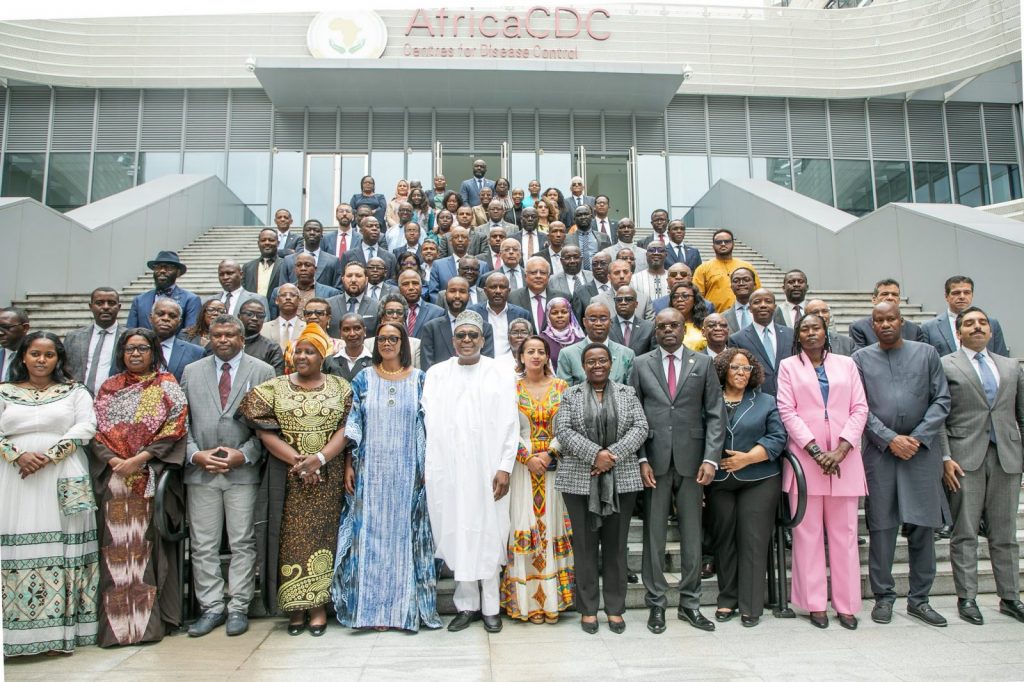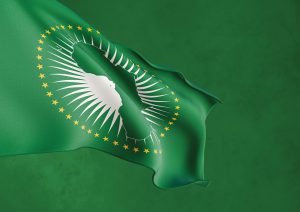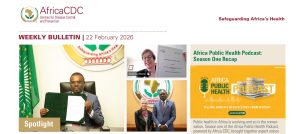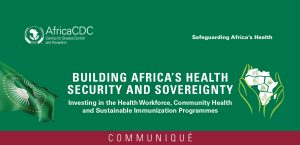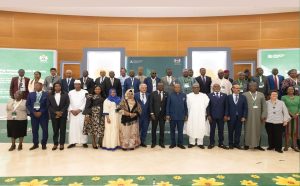We, the Ministers of Health of African Union Member States, held a meeting on 27th April 2024 in Addis Ababa, Ethiopia under the facilitation of the Africa Centres for Disease Control and Prevention (Africa CDC), for a High–Level Ministerial Consultation for Intergovernmental Negotiating Body on the draft Pandemic Prevention, Preparedness and Response Agreement, have agreed as follows:
RECALLING the African Union Declaration on Accelerating the Implementation of IHR in Africa (2017), the amended Statute of the Africa CDC (2022), the Africa CDC Strategic Plan 2023-2027, and the Common African Position on Pandemic Prevention, Preparedness and Response adopted by the African Union Assembly of Heads of State and Government in February 2024;
ALSO RECALLING the International Health Regulations (2005), the WHO Regional Strategy for Health Security and Emergencies (2022-2030), WHO African Region’s Integrated Disease Surveillance and Response Strategy (2020-2030), and the UNICEF operational Response Plan for Public Health Emergencies (2024);
COGNISANT that Africa has been confronted by numerous outbreaks and other public health emergencies, with over 160 reportable public health events per annum, accompanied by lack of solidarity in addressing challenges, such as the COVID-19 pandemic, epitomized by the failure to share health products and technologies in a timely and equitable manner that adversely affected the African continent;
EMPHASISING the need for a joint robust pandemic prevention, preparedness and response system that ensures solidarity and equity against public health threats and guided by the main principles on fair and equitable allocation of pandemic-related products to African countries, technology transfer, multilateral pathogen access and benefit sharing system, regional manufacturing, sustainable financing mechanism, and the need for a robust and multisectoral governance mechanism that can insist on and support transparency and accountability for the benefit of Member States;
RECOGNISING the current limitations of the Pandemic Fund in terms of important gap in its financing and governance to better support Pandemic Prevention, Preparedness and Response, health systems strengthening, local production capacities in Africa, and the importance of additional sources of innovative financing, including through the African Epidemic Fund;
ALSO RECOGNISING our responsibilities, as AU Member States, for appropriate investment in our health workforce, surveillance system, local manufacturing, clinical trials, and Research and Development, as well as competencies in the IHR core capacities;
EXPRESS OUR APPRECIATION for the support of the African Union, through the Africa CDC to African Member States in their ongoing negotiations for the Pandemic agreement.
COLLECTIVELY, WE RESOLVE AND COMMIT OUR GOVERNMENTS AND INSTITUTIONS TO:
1. ENSURE EQUITY IN THE DRAFT PANDEMIC AGREEMENT through:
a. A multilateral pathogen access and benefit sharing system (PABS), which provides legal certainty for both users and providers and ensures an improved access to pandemic-related health products, technologies with measures that establishes regionally-distributed production of pandemic related health products.
b. Commitments to organize and resource technical support on the range of matters covered by the draft agreement, including all equity-related provisions, as well as pandemic prevention and public health surveillance, preparedness, readiness, and resilience, and health and care workforce through WHO coordinated mechanisms that are accountable to the Conference of Parties.
c. Appropriate safeguards and limitations that should be placed on the use and sharing of data and information provided by State Parties to WHO, such that the information shared should not be used to the detriment of the interests of the State Parties providing the information such as disproportionate travel or trade bans, devaluation of credit rating and/or sovereign bonds.
2. PANDEMIC PREVENTION, PREPAREDNESS AND RESPONSE (PPPR)
a. Formulate coherent national and regional strategies for emergency preparedness and response and health workforce development, including community health workforce.
b. Enact domestic laws providing for broad exemptions and limitations to intellectual property to address public health emergencies.
c. Increase supply chain diversification and logistics streamlining (continental, regional and national), including through initiatives with other Global South countries.
d. Make incremental steps, in line with respective capacities and nationally self-determined priorities, on PPPR competencies.
e. Operationalize various WHO coordinated mechanisms such as on coordinating R&D and technology transfer, in a manner that such mechanisms are accountable to the Conference of Parties and take guidance from the Conference of Parties in their operations.
3. PREDICTABLE, SUSTAINABLE FINANCING AND GOVERNANCE
a. Call for an International financing mechanism that is accountable to the Conference of Parties and enshrining explicit commitments to new, sustainable, and increased funding support from developed countries for country-level pandemic prevention, preparedness and response in developing countries, debt relief and debt restructuring mechanisms including debt for PPPR swaps.
b. Accelerate the operationalisation of the financing of the African Epidemic Fund.
AFRICA STANDS READY TO PLAY ITS PART AND COMMITS TO ENGAGE ACTIVELY IN THE ONGOING NEGOTIATIONS AND FINALISATION OF THE DRAFT PANDEMIC AGREEMENT.
Addis Ababa, 27 April 2024

